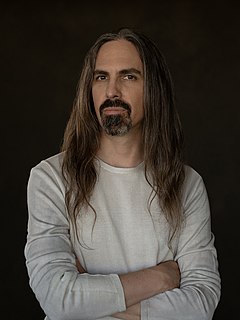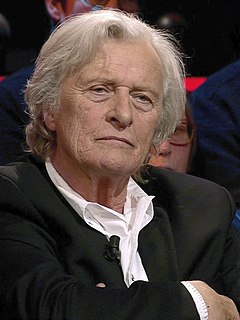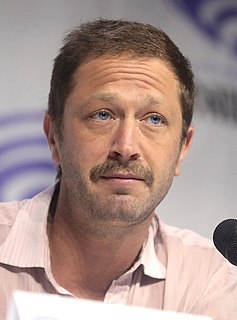A Quote by Philip Seymour Hoffman
Film's hard when you don't have any relationship with the director at all and you just show up. Then you really are just a gun for hire.
Related Quotes
It really depends on the director. I think quite often, it's not what you expect. The most serious film can be the most fun. The one that's supposed to be fun can be the most serious. I don't think there are any hard-and-fast rules. I just think it really depends on your director and what the general vibe is.
It's true that I don't think I'd be a good director. If I were a director, I'd try to hire the best people I could and then leave them alone. I don't know much about cameras or lighting, so I'd make sure that I had a really good cameraman who understood lenses and lighting, and I say to him, "This is the scene we have to shoot and this is what I think it should be, you go do it." Same with actors. But really, very good directors who know everything do basically the same thing. They hire you and then they leave you alone.
As an actor, you have to give up all control to the director. He's the boss and has all the power. I'm a control freak, so that's really hard for me. Then when you see a film later, it can be infuriating, really disappointing. I've been very lucky, though, and so many of my early experiences were great.
The shift for me, after spending a long time trying to take existing projects and bring them to fruition as a director for hire, is going back to where I started as a self-generating director. After trying and failing to get so many things made, I have decided that you've just got to do something you really, really love.
I memorize my lines and I show up. I think it's just instinctual, and sometimes it's wrong and the director says, "No, do it this way." And then I can change, because I didn't spend all night practicing it this one way. All I do to get ready for the day is the night before, I read my lines once or twice, memorize them, and then I show up.
I no longer do a film for the wrong reasons. I have to be convinced ethically and morally. Both the director and I have to be on the same page. There are just five songs in most films these days, and they have to be amazing. There has to be a twist in the screenplay. The editing has to be crisp. Your hard work should show, but effortlessly.


































